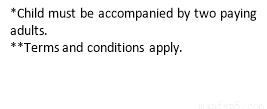题目内容
Annie slept in the front of the seat with her father drove through the darkness. ”We’re almost there!” Dad announced cheerfully. “Soon well be observing and counting owls at the state park.” Yawning, Annie nodded and smiled. The time was 4:30 a.m. Looking out into the darkness, Annie remembered learning in school that most owls are active at night, when they hunt for food. During the day they sleep in hard-to-find spots.
“Dad, why do you need to count owls?” she asked. “It’s important for the scientists to have current information about bird populations,” he explained. “We want to know which birds have decreased in number and whether any new kinds of birds are coming into a certain area. You and I will write down the kinds of birds that we see today and keep a record of how many times we see each kind. The we’ll send out a report to a scientific organization that is collecting about birds from people all over the county.”
Dad pulled into the parking lot of the state park. Then, with flashing in hand, they began their hike into the woods. Annie zipped up her coat and tried to keep from trembling. She had not expected the morning to be so frigid. Luckily her gloves were in her pocket.
Suddenly Annie’s father stooped and gestured for her to be still. Obeying, Annie did not take another step. She thought she heard a low crying up head. “That’s certainly a screech owl,” her father whispered. “Let’s get a look at it.” After looking more closely, Annie could see that it was a small owl. Sensing danger, the owl narrowed its eyes and pulled its feathers tightly against its body. Annie carefully wrote down in her notebook that they had seen a screech owl.
Walking a little farther, they came to a tall oak tree. “This looks like a perfect spot to attract owls,” Dad said. “I’m going to play a recording of common call of the barred owl. Maybe we can get one to answer.’ Annie could hardly believe her ear. The recorded all sounded as if the bird were asking, “who cooks for you?” Moments later Annie thought she heard a return call in distance. She held her breath and waited. Suddenly a huge bird landed very quietly on a branch above them.
Annie had long forgotten how cold it was. She stood in wonder, shining her flashlight on the bird and studying it carefully. The barred owl was nearly tow feet tall. Gray feathers surrounded its dark eyes. The bird did not matter. Annie would never forge the image of the powerful barred owl.
1.Annie and her father went to the state park to _________.
A. catch owls
B. collect information about owls
C. record the call of owls
D. carry out an experiment on owls
2.With the help of ________, Annie could study the barren owl carefully.
A. scientists
B. moonlight
C. flashlight
D. a recorder
3.How did Annie feel when she saw the barren owl?
A. Bored
B. Relaxed
C. Frightened
D. Amazed
4.What would be the best title?
A. The Owl Count
B. A Study on Owls
C. Observation of Birds
D. A Cheerful Early Morning
 备战中考寒假系列答案
备战中考寒假系列答案







